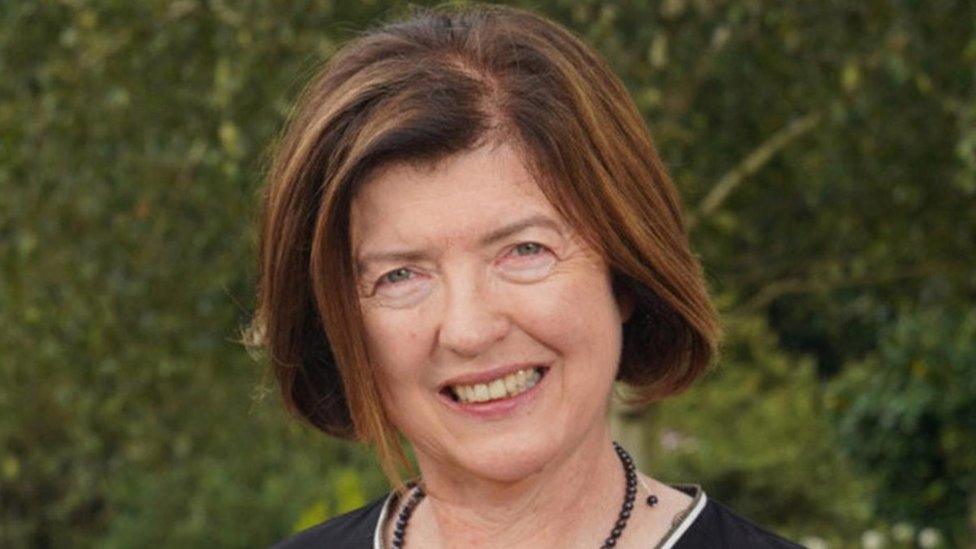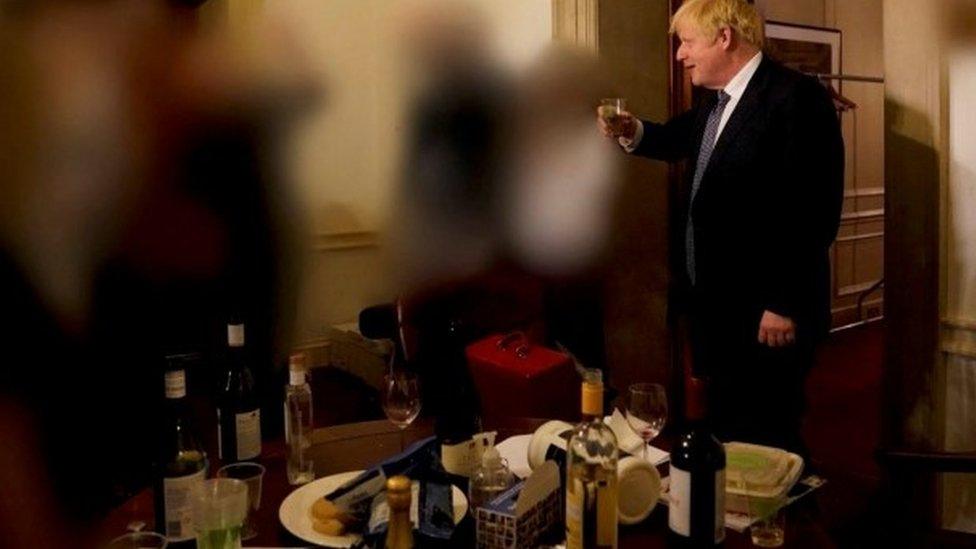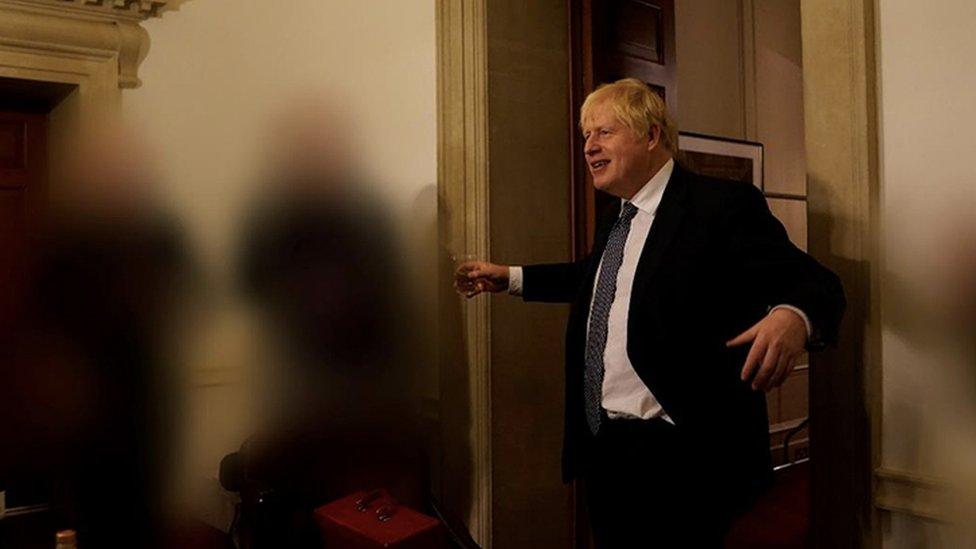Partygate probe chief Sue Gray offered top job by Labour leader Starmer
- Published

Senior civil servant Sue Gray, who investigated lockdown gatherings in Downing Street, has been offered a job as Sir Keir Starmer's chief of staff.
A Labour spokesman said Sir Keir was "delighted" that "she hopes to accept the role subject to the normal procedures".
But allies of Boris Johnson reacted with anger to the news.
Former minister Jacob Rees-Mogg said Ms Gray's Partygate conclusions now looked "like a left-wing stitch up".
"So much for an impartial Civil Service, the Gray report now looks like a left-wing stitch up against a Tory prime minister," the former business secretary and Brexit opportunities minister tweeted, external.
A friend of Mr Johnson said Ms Gray's job offer undermined the validity of her investigation into parties held in Downing Street when Covid-19 restrictions were in force.
"What was supposed to be an investigation by independent civil servants is now revealed to have been carried out by someone who ultimately would go on to work for Keir Starmer," they said.
Ms Gray herself has yet to comment.
A Cabinet Office spokesperson said: "We can confirm that Sue Gray has resigned from the post of Second Permanent Secretary in the Department for Levelling Up, Housing and Communities (DLUHC). This was accepted by the department Permanent Secretary and Cabinet Secretary with immediate effect.
"We will not be commenting further on individual personnel matters. We are reviewing the circumstances under which she resigned."
Under the civil service code, officials of Ms Gray's seniority must wait a minimum of three months before taking up outside employment.
The move will be scrutinised by the anti-corruption watchdog, the Advisory Committee on Business Appointments (Acoba), which will advise the prime minister on whether the move is "unsuitable".
Rishi Sunak will make a final ruling, but does not have the power to block an appointment.
'Failures of leadership'
Ms Gray went from an influential but little-known arbiter of conduct in government to a household name.
Her report on the Partygate scandal last year contributed to Mr Johnson's downfall as prime minister, prompting numerous Conservative MPs to call on him to resign.
She criticised "failures of leadership and judgment" in No 10 and said "the senior leadership at the centre, both political and official, must bear responsibility".
Separately, Mr Johnson received one of 126 fines issued by the Metropolitan Police while it investigated gatherings in Downing Street and Whitehall.
Hearings in an inquiry by the Commons Privileges Committee into opposition claims Mr Johnson misled MPs about what he knew about the lockdown gatherings in government buildings are expected to begin in the coming weeks.
Other key allies of Mr Johnson have been quick to comment.
Former Culture Secretary Nadine Dorries tweeted that Ms Gray's reported move to Sir Keir's office was "not surprising", external.
"Whilst writing report, she used QC who tweeted out pro Labour anti gov [government] tweets whilst Alistair Campbell heaped praise upon her. Her comms [communications] assistant briefed against Johnson from day 1.
"The Gray report was a stitch up of PM and CSs [civil servants]," she said.

Analysis from BBC political correspondent David Wallace Lockhart
Very few civil servants become household names. Sue Gray definitely cleared that bar.
She was selected to investigate Partygate because of her reputation as an unimpeachable government official.
It's important to stress that Ms Gray taking a political job with Labour doesn't mean she was ever biased in her role as a civil servant. Everyone working in government will have personal views, but they're trusted and expected to serve the ministers of the day.
But her proposed career move does provide allies of Boris Johnson with ammunition to question the legitimacy of her Partygate findings (which were very bad for the former prime minister).
Why are Labour making this appointment? The qualities Sue Gray has largely been associated with - professionalism, propriety and public service - are exactly those they want to project.
And it sends a sign about the party's intentions - Keir Starmer wants to work closely with someone who was (until very recently) a senior civil servant, because he intends to make it to 10 Downing Street.

Bassetlaw MP Brendan Clarke-Smith said he was "genuinely shocked", and accused Sir Keir of having "scant regard for the public image of the civil service and the damage this will do".
"After the events of last year, people will quite understandably be questioning the appropriateness of this appointment, including issues of impartiality," he added.
Former civil servant Alex Thomas, who now works for the Institute for Government think tank, said the move would be "difficult for the civil service", giving its "critics a stick".
"Tricky development for those defending impartiality," he added.
Related topics
- Published25 May 2022

- Published25 May 2022

- Published30 June 2023
